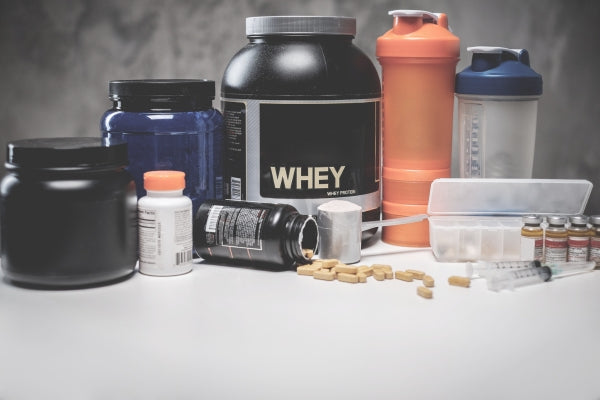

Testosterone boosting supplements are popular for supporting energy, strength, libido, and overall vitality.
Many individuals explore natural supplements traditionally associated with supporting vitality, strength, libido, and overall well-being. While these supplements do not directly supply testosterone, some contain ingredients that are thought to contribute to maintaining hormonal balance or supporting the body’s normal functions.
Below is an overview of nine commonly used supplements, based on traditional use and emerging research. Always remember: individual results may vary, and claims are subject to regulatory approval.
Traditional Use:
Shilajit is a mineral-rich substance found in mountainous regions like the Himalayas, valued for its natural fulvic acid content.
Potential Role:
It has been traditionally used to support general vitality.
Typical Usage:
300–500 mg per day of purified Shilajit resin.
Traditional Use:
Ashwagandha (Withania somnifera) is an adaptogen traditionally used to help the body cope with stress and support balance.
Potential Role:
It may help support overall well-being, including hormone health.
Typical Usage:
300–600 mg per day of standardized extract.
Traditional Use:
D-Aspartic acid is an amino acid studied for its possible role in the body's hormone signaling processes.
Potential Role:
It may support the normal release of certain hormones involved in reproductive function.
Typical Usage:
2,000–3,000 mg per day, often used in short cycles.
Established Role:
Zinc contributes to the maintenance of normal testosterone levels in the blood and supports the normal function of the immune system. These claims are authorized by EFSA.
Typical Usage:
Recommended daily intake for men is 11 mg; higher dosages (up to 30 mg) are sometimes used short-term under supervision.
Established Role:
Vitamin D contributes to the maintenance of normal muscle function and plays a role in the process of cell division. These claims are authorized under EU regulations.
Potential Role:
Low vitamin D status is associated with various aspects of health, including hormonal balance.
Typical Usage:
2,000–5,000 IU daily, depending on individual needs.
Traditional Use:
Tribulus Terrestris has been traditionally used in various cultures for vitality and male health.
Potential Role:
Research on its impact on testosterone is mixed; it remains popular for traditional reasons.
Typical Usage:
250–750 mg per day of standardized extract.
Established Role:
Magnesium contributes to normal muscle function, normal energy-yielding metabolism, and the reduction of tiredness and fatigue.
Potential Role:
Magnesium may play a role in supporting overall health, which is indirectly important for hormonal balance.
Typical Usage:
400–420 mg per day for adult men.
Traditional Use:
Fenugreek (Trigonella foenum-graecum) has been used traditionally in herbal practices and cooking.
Potential Role:
Some extracts are being studied for their effects on body composition and well-being, but claims await scientific consensus.
Typical Usage:
500–600 mg per day of standardized extract.
Emerging Research:
Boron is a trace element involved in various metabolic processes, and some early studies suggest a potential role in maintaining normal hormone activity.
Potential Role:
Pending further scientific validation.
Typical Usage:
3–10 mg per day.
Many claims related to the effects of botanicals and supplements mentioned above are still pending assessment by the European Food Safety Authority (EFSA).
For current information regarding health claims under review, please refer to the EFSA 'Botanical Claims on Hold' list.
When selecting a testosterone-boosting supplement, look for high-quality, standardized ingredients and check for third-party testing. Always follow dosage guidelines, as excessive intake can lead to side effects or hormonal imbalances.
Final Note:
Natural supplements can be a supportive part of a healthy lifestyle, but they should never replace a balanced diet, regular physical activity, sufficient sleep, and stress management.
Before starting any new supplement, it is essential to consult with a qualified healthcare professional, especially if you have an existing health condition, are taking medication, or have concerns about hormone health.
Choosing high-quality, third-party-tested supplements and respecting recommended dosages can help promote safe and responsible use.
Share:
Best form of Vitamin D
Multivitamins: Everything you need to know